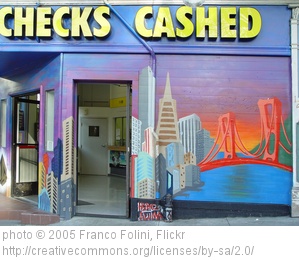By: Jer Trihouse. Regulators continue to pursue 3rd party processors and small dollar loan vendors. If by chance you missed this, New York Financial Services Superintendent Benjamin Lawsky said, “Payday lending is illegal in New York and so is the deceptive marketing of those unlawful loans by lead generators.”
The lead generation companies that received subpoenas are: Allied Cash Advance, Bahamas Marketing Group, Blue Global, DJR Group, Fix Media Group, Hydra Fund II, LightSword, Payday Loan Ranger, Payday Mobility, PayDayForest, PayDayMall, Personal Advance, Selling Source, US Cash Loans, Valley Trust, and WebMarketerLive.
Cuomo Administration Expands Investigation into Illegal Online Payday Lending and Related Consumer Abuses
Subpoenas Sent to 16 Companies Suspected of Selling Consumers’ Sensitive Personal Information to Illegal Online Payday Lenders, Scam Artists, and Other Companies
New York Consumers Who Believe They Have Been Victimized by Payday Lending or Related Abuses Should Contact DFS Hotline at (800) 342-3736
Albany, NY Press Release:
Governor Andrew M. Cuomo today announced that his Administration is expanding its efforts to protect New Yorkers from illegal, online payday lending and related fraudulent activities that harm consumers. As part of an extensive and ongoing investigation, the Department of Financial Services (DFS) sent subpoenas to 16 online ‘lead generation’ firms suspected of deceptive or misleading marketing of illegal, online payday loans in New York. DFS suspects that these firms are placing consumers at risk of abuse by collecting and selling their personal information to illegal online payday lenders and other companies, including scam artists, in violation of New York State law.
“Earlier this year, my administration launched an investigation of online payday lenders, and today we are expanding this investigation to protect New Yorkers from similar scams that ensnare families in endless cycles of debt,” Governor Cuomo said. “We will continue to follow this investigation wherever it leads and use every tool at our disposal to safeguard New Yorkers from those who seek to prey upon vulnerable consumers.”
Benjamin M. Lawsky, Superintendent of Financial Services, said, “Payday lending is illegal in New York and so is the deceptive marketing of those unlawful loans by lead generators. What’s worse is that we’ve received complaints from New Yorkers about lead generation companies related to scams, harassing phone calls, deceptive advertising, and privacy breaches. New Yorkers can get sucked into a seemingly endless black hole of consumer abuse if they provide their sensitive personal information to these types of websites.”
Lead generation firms do not typically make payday loans directly, but instead set up websites marketing those illegal loans. Through promises of access to quick cash, the lead generation companies entice consumers to provide them with sensitive personal information – such as social security and bank account numbers – and then may sell that information to payday lenders operating unlawfully in New York and other companies. As part of its investigation, DFS has heard complaints from New York consumers against a number of these lead generation firms about false and misleading advertising (including celebrity endorsements), harassing phone calls, suspicious solicitations, privacy breaches, and other issues.
Some consumers have also complained to DFS about receiving calls from suspected scammers after providing their personal information to the lead generation companies. These scams include enticing the consumers to load money on a pre-paid debit card and use it to pay substantial upfront fees in order to receive an online payday loan. After paying these substantial upfront fees, the consumers reported not receiving the promised loan. Today’s action sends a strong message to payday loan lead generators and their network of affiliate marketers that misleading or deceptive marketing of payday loans to New Yorkers is unacceptable.
Payday lending is illegal in New York under both civil and criminal usury statutes. In some cases, however, lenders attempt to skirt New York’s prohibition on payday lending by offering loans over the Internet, hoping to avoid prosecution. Nonetheless, Internet payday lending, as well as the misleading or deceptive marketing of those loans to New Yorkers, is just as unlawful as payday lending made in person in New York.
In August 2013, DFS demanded that 35 companies cease and desist offering illegal payday loans online in violation of New York law. The majority of these companies (at least 23) have already ceased business in New York after receiving the letters from DFS. Governor Cuomo also announced in August that Superintendent Lawsky sent letters to 117 banks – as well as NACHA, which regulates the use of the Automated Clearing House (“ACH”) network and whose board includes representatives from a number of those banks – requesting that they work with DFS to cut off access to New York customer accounts for payday lenders operating unlawfully. Additionally Superintendent Lawsky sent a letter in August to all debt collection companies operating in New York specifically directing them not to collect on illegal payday loans from the companies DFS’ investigation had identified to date, since such loans are null and void.
A list of the 16 lead generation companies to which DFS issued subpoenas is included below. DFS is demanding a range of materials as part of its ongoing investigation, including marketing materials, contracts for sales of consumer information and privacy policies.
Allied Cash Advance
Bahamas Marketing Group, Inc.
Blue Global, LLC d/b/a 100DayLoans, HighSpeedPayday
DJR Group, LLC
Fix Media Group, LLC d/b/a We Fix Money
Hydra Fund II
LightSword, LLC d/b/a Aero Advance
Payday Loan Ranger
Payday Mobility
PayDayForest
PayDayMall
Personal Cash Advance
Selling Source, LLC d/b/a MoneyMutual, LLC
US Cash Loans
ValleyTrust
WebMarketerLive d/b/a JustClickHereLoans, CashMoneyNow
Consumers who believe that they have been the victim of a payday loan company or lead generation firm operating unlawfully – or if a debt collector is seeking to collect on an illegal payday loan – can file a complaint with the Department of Financial Services at (800) 342-3736. DFS has also posted information on its website for consumers about combating illegal online payday loans, which is available at the following link.
Consumers can avoid prepaid card and other scams associated with payday loan lead generation websites with these simple precautions:
Be aware of the heightened risk of scams associated with payday loan lead generators. Lead generators will usually identify themselves in small print at the bottom of their webpages by stating that they are not lenders but will match consumers with a network of lenders.
Do not provide sensitive personal information (such as your Social Security number or bank account number) using online forms for payday lenders or payday loan lead generators.
Never pay upfront fees (such as a “bank fee”) using a prepaid card as a condition for receiving a loan.
Do not be intimidated by harassing phone calls or threats of prosecution or other legal action if you do not pay fees associated with payday loans. Report these calls to DFS along with the website that received your personal information.
Take steps to guard against identity theft. Check your credit report regularly for suspicious activity (you can get a free credit report from each of the Big Three credit reporting agencies through www.annualcreditreport.com [2]). Consider placing a security freeze or credit alert on your credit report if you are or think you may be a victim of identity theft.
If you have been a victim of identity theft, contact your local police department immediately and save a copy of the police report. For more information about protecting yourself from identity theft, visit DFS’ Avoid Identity Theft webpage.
Contact Webmaster
Source URL: http://www.governor.ny.gov/press/12032013Illegal-Online-Payday-Lending
 By: Jer Ayler at Trihouse – For Small Dollar Lenders – Check 21 vs ACH Payments
By: Jer Ayler at Trihouse – For Small Dollar Lenders – Check 21 vs ACH Payments

